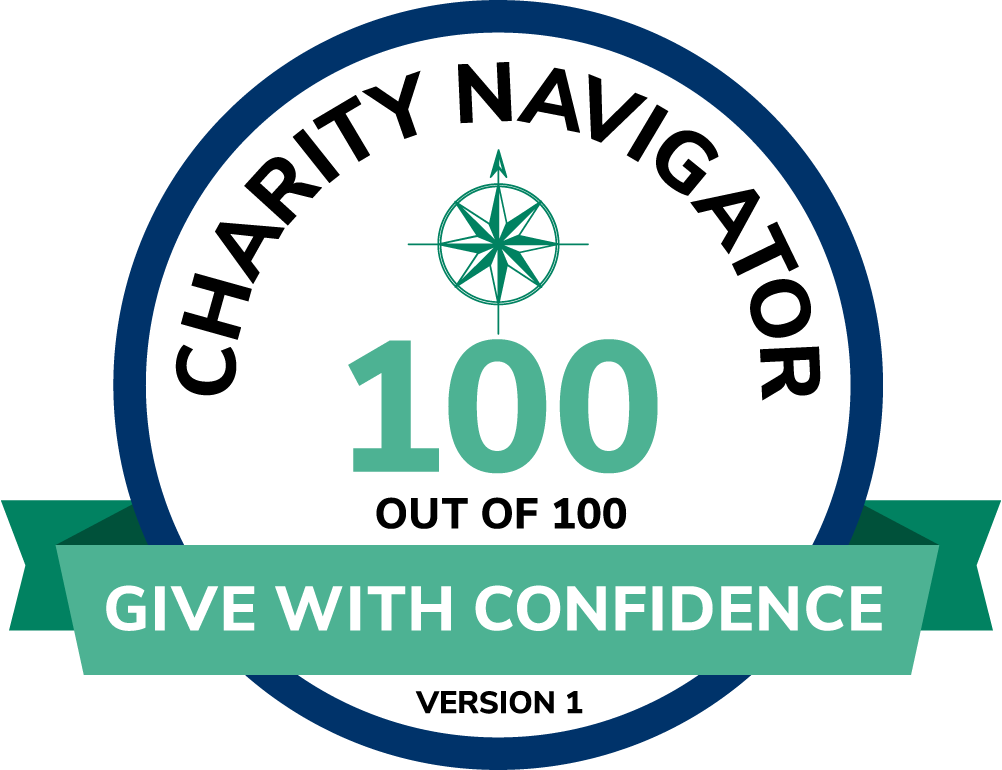Domestic & Family Violence
I NEED HELP
Noah Project offers crisis intervention services to anyone experiencing domestic violence or intimate personal violence, including:- 24-hour hotline
- Safe shelter
- Outreach services for clients not in shelter
- Living essentials (hygiene items, clothing, etc.)
- Safety planning
- Crisis counseling
- Children's services
- Legal services
LONG-TERM RECOVERY
Recovering from domestic violence is a long-term process. Once a client has established their immediate safety, we can begin the process of empowering a victim to become a survivor and live independently through these resources:- Education about the dynamics of family violence
- Support groups
- Transitional housing
- Therapy & counseling
My child needs help
Noah Project has tailored services for children who have experienced domestic violence in their families:- Children's support group
- Re-enrollment in previously attended school
- Educational resources (computer, backpack, school supplies, etc.
- Safety-planning to help children escape violence
- Activities for children living in the shelter (fieldtrips, summer programs, etc.)
- Children’s therapy
- Indoor and outdoor play areas, with books, toys, bicycles, etc.
Do I need help?
Domestic violence can take many forms. If you are experiencing any of these situations, call Noah Project at (325) 676-7107.Threats, Coercion, or Intimidation
Physical abuse is more than just hitting. It may also involve:- Objects like tools or weapons
- Destroying your things
- Crowding your space
- Holding you so you can't walk away
- Driving you out to the middle of nowhere
- Threatening suicide
- Making someone use drugs/alcohol
- Abusing pets
- Displaying weapons
- Destroying property
- Asking victim to drop charges
- Threatening to leave
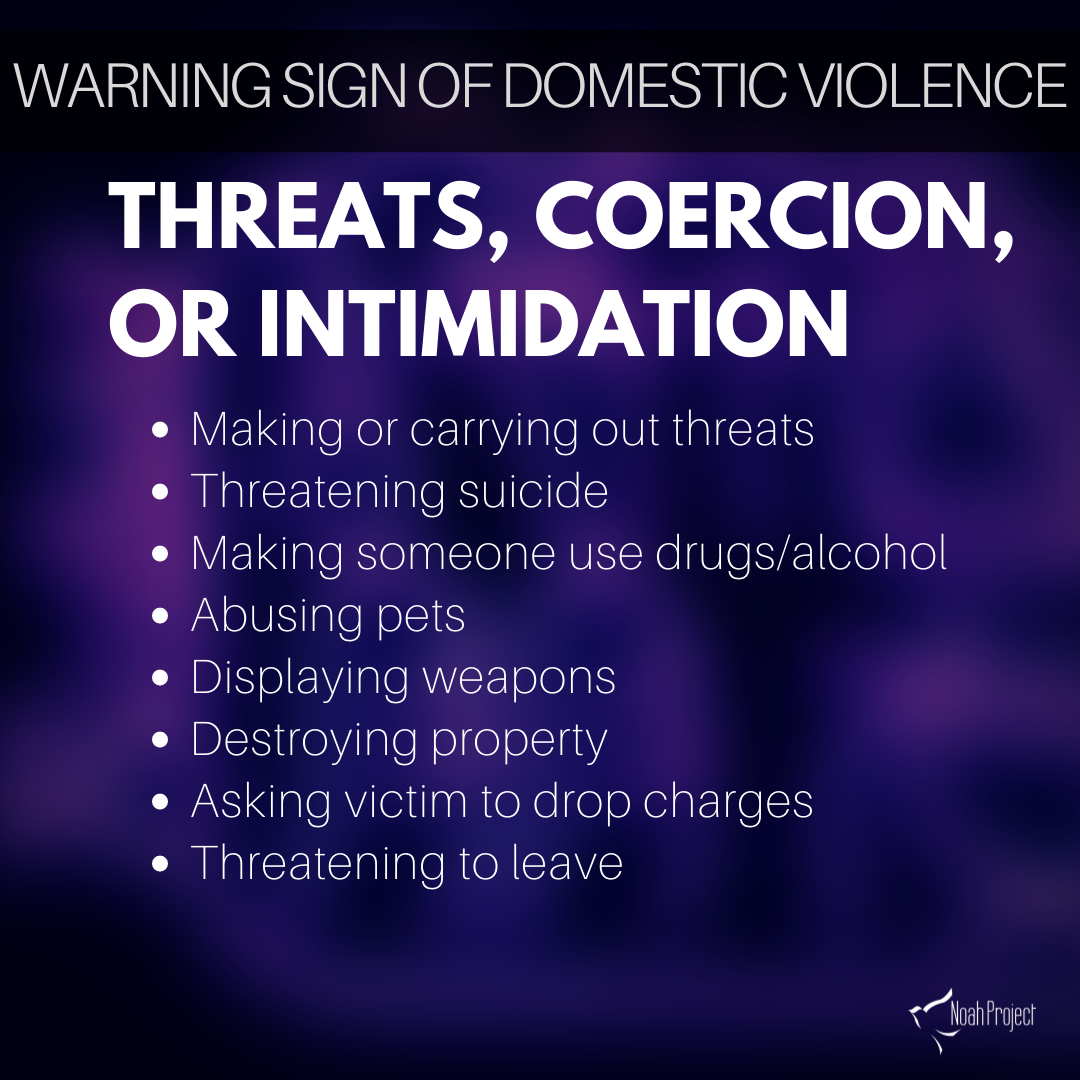
Emotional Abuse
Emotional abuse can be very damaging. It’s difficult to identify, but usually involves repeated words and actions intended to hurt or humiliate you in front of others, such as:- Name calling
- Gaslighting
- Mind games
- Humiliation
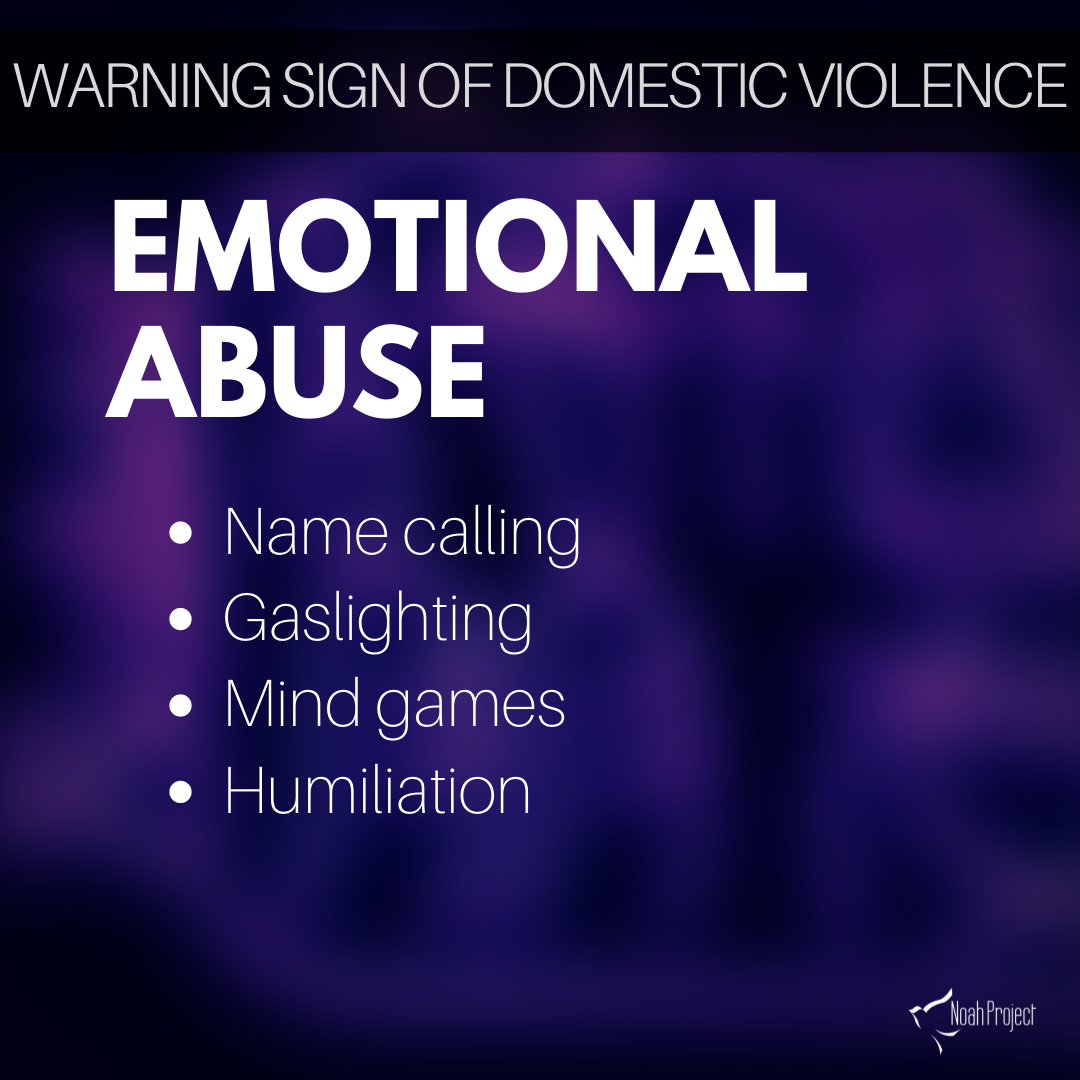
Economic abuse
Economic abuse is about more than just money. Economic abuse involves cutting off or limiting your money, but it also includes any time your partner keeps you away from the things you need to be successful. Economic abuse could be:- Preventing you from getting and keeping a job
- Harassing you at work
- Controlling access to money
- Giving you an allowance
- Taking the money you earned at work
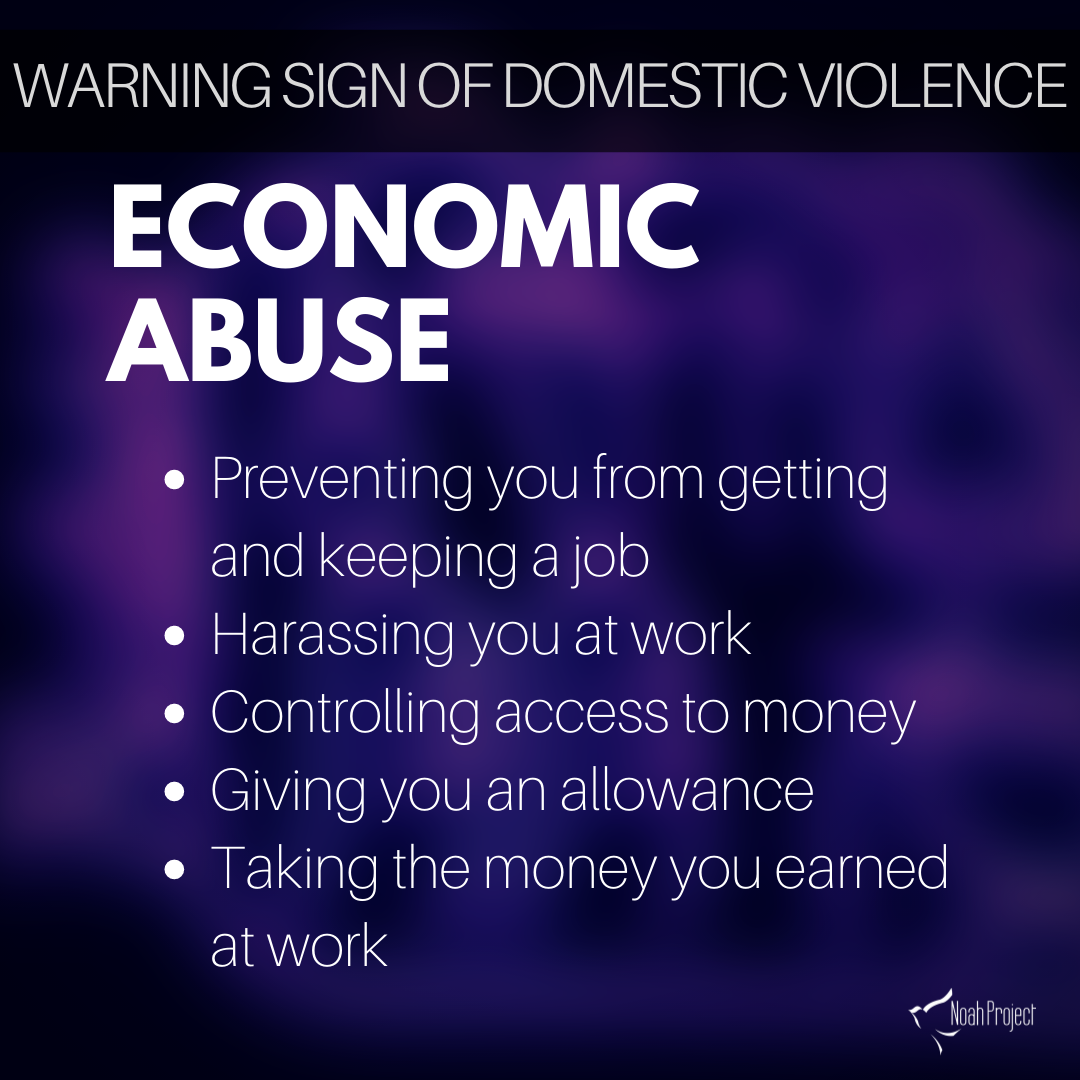
Minimizing, Denying, & Blaming
Abusers don’t want to admit to their wrongdoing. Instead they will:- Make light of the abuse
- Not listen to your concerns
- Say you caused the abuse
- Deny the abuse
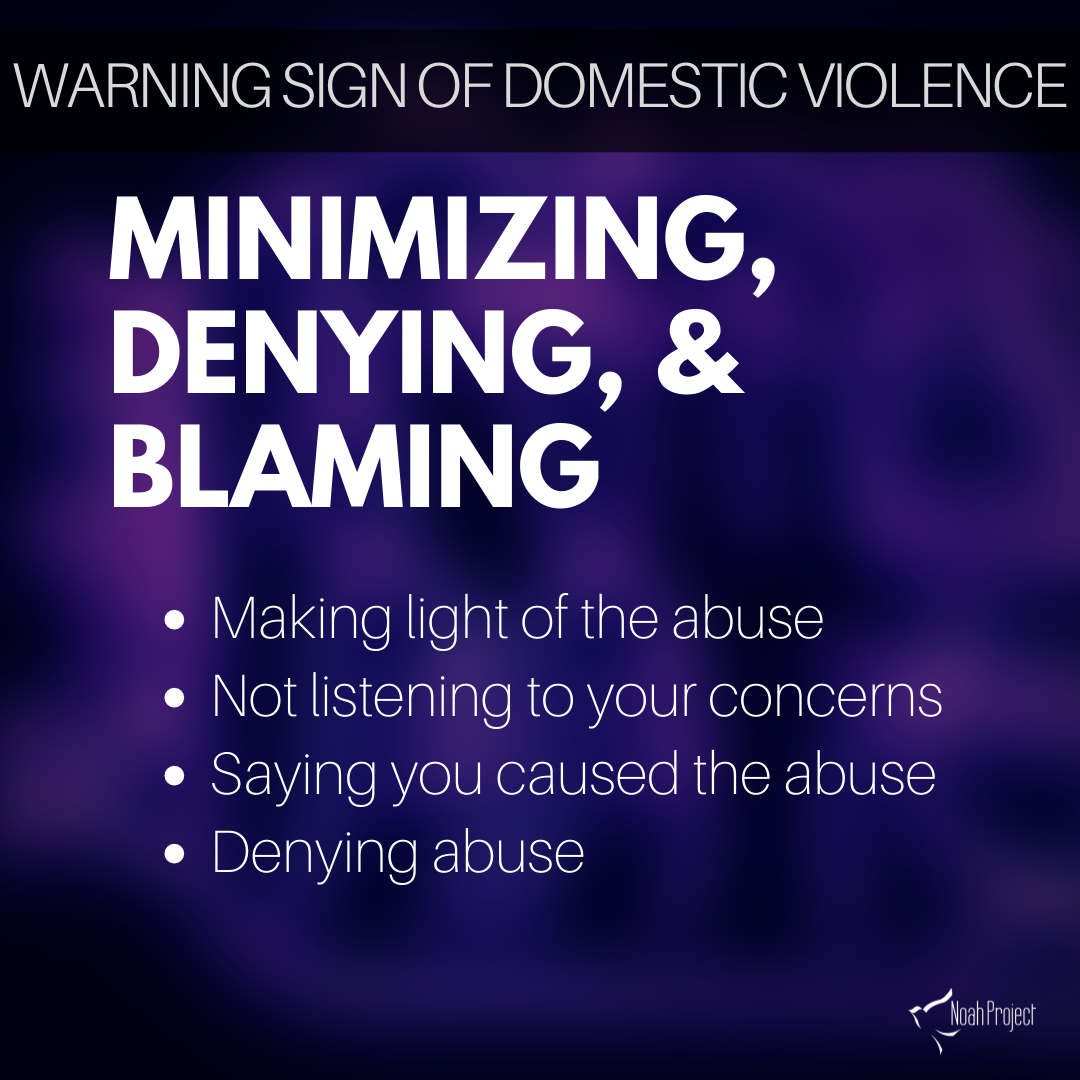
Isolation & Social Deprivation
Keeping you away from your friends is not okay. Cutting someone off from friends and family is very common in abusive relationships. Your partner should not:- Make you feel bad about hanging out with friends
- Make you feel guilty if you want time to do your own things.
- Control what you do, where you go, or who you talk to
- Use jealousy to justify unhealthy actions
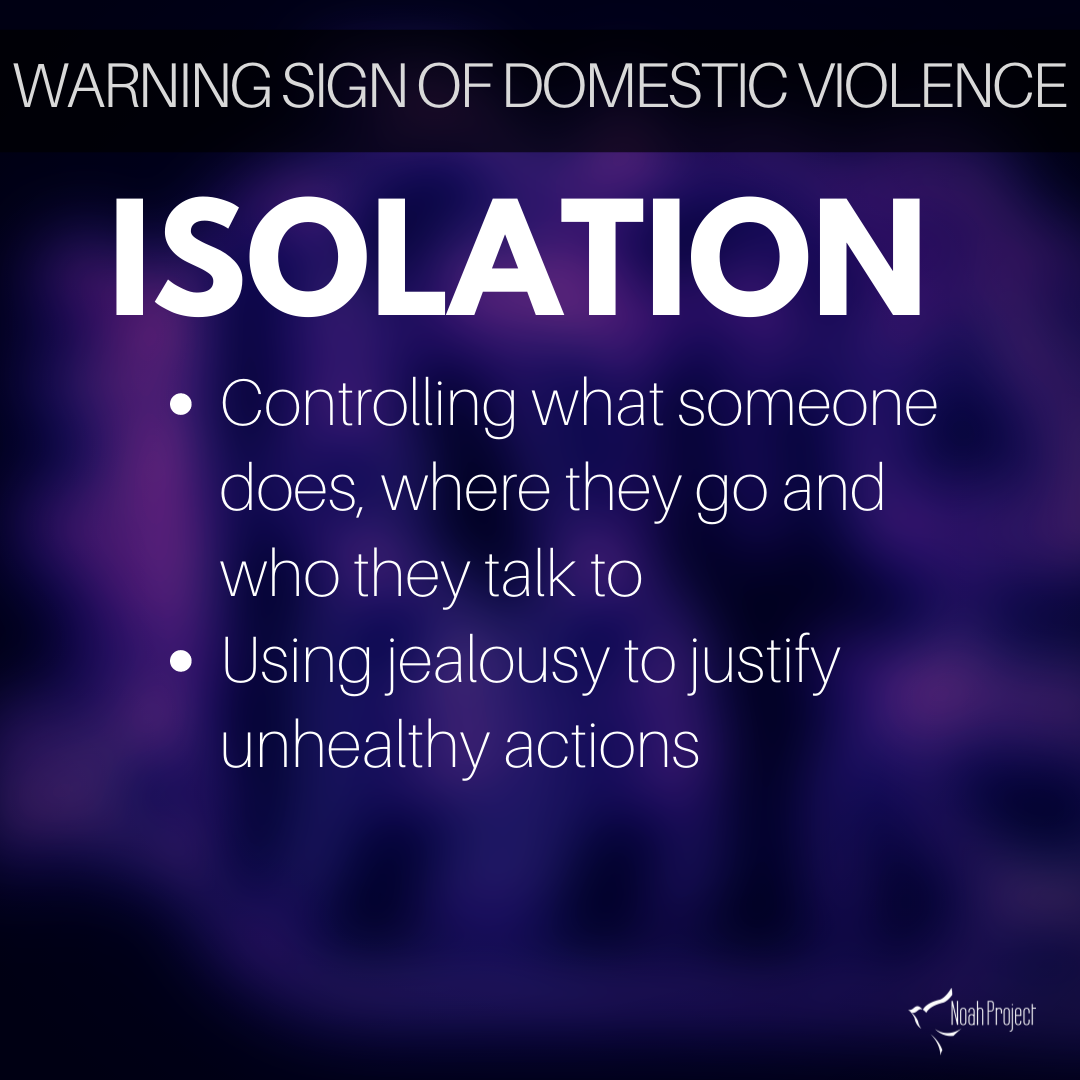
Using Children
Abusers often use children as leverage to get what they want. They might:- Threaten to take the children
- Use children to relay messages
- Harass victim during visitation
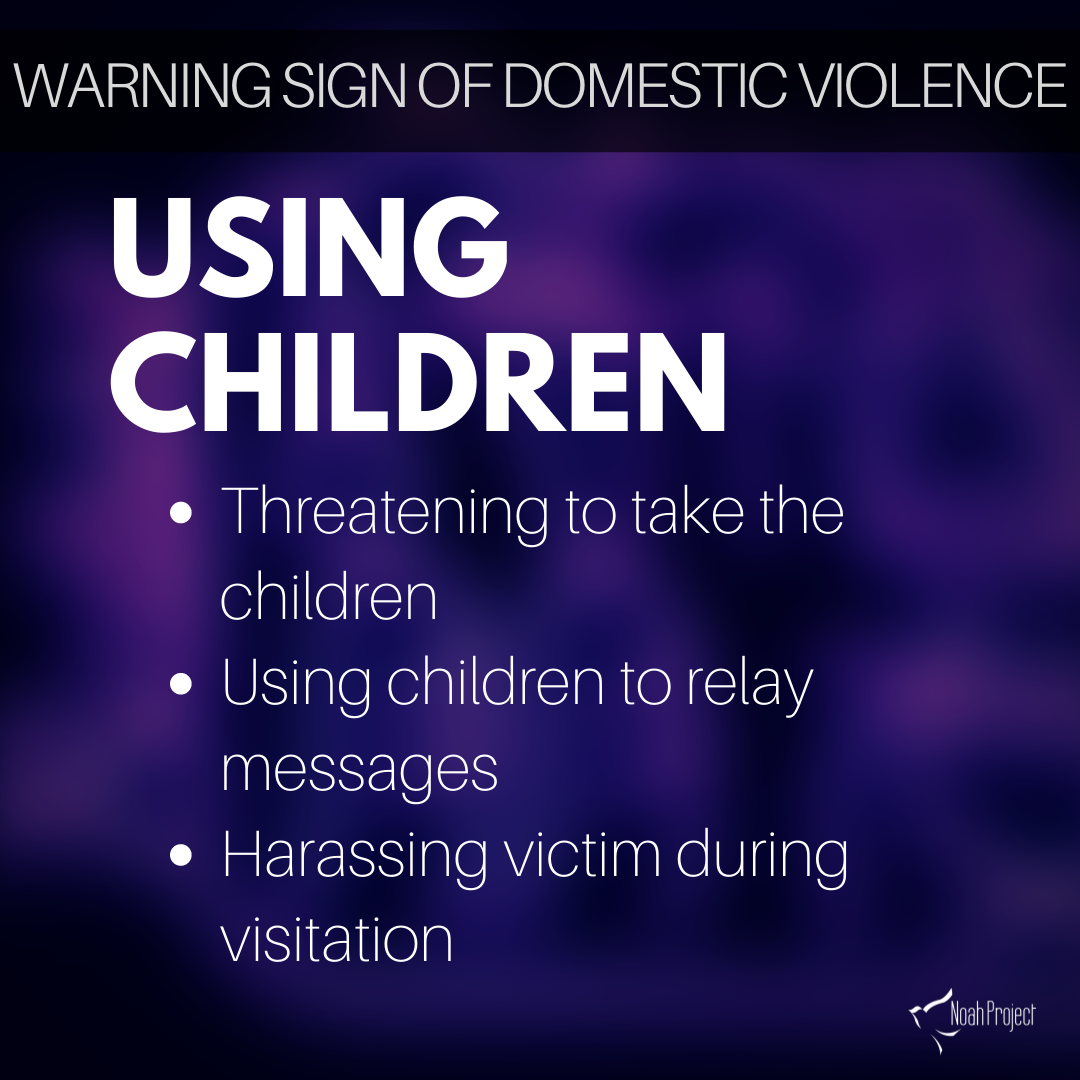
Male Privilege
In cases where the abuser is male and the victim is female, the abuser will use his gender as a weapon by:- Enforcing rigid gender roles
- Treating women as inferior
- Making all the decisions
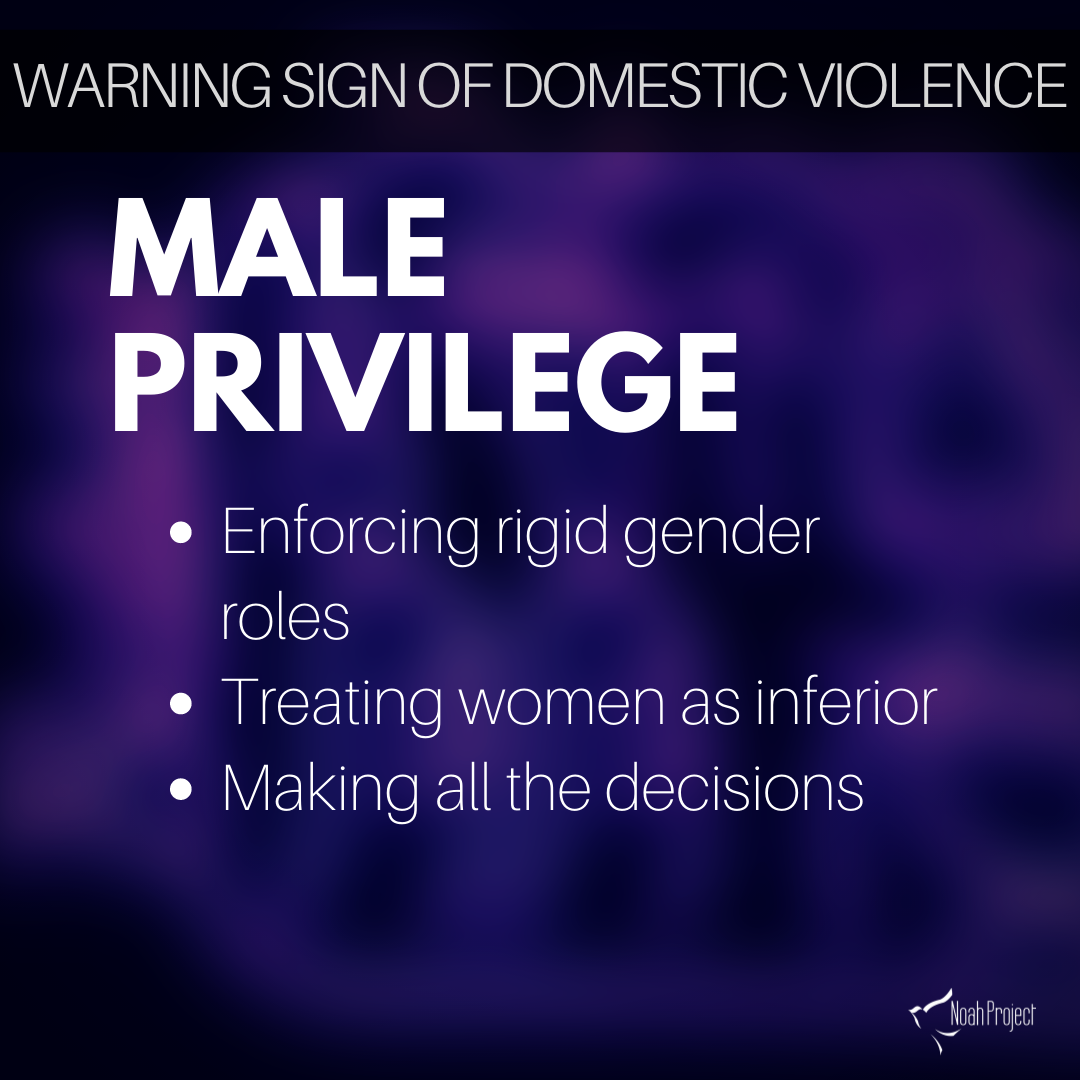
I Know Someone Who Needs Help
If you know someone experiencing any form of domestic violence, encourage them to call Noah Project. Only the victim can make a report and seek services. To support your friend:Believe them
Many survivors fear seeking help because they have been told by their abuser that nobody will believe them. If you know a survivor, listen to their needs, and communicate your support.Validate them
Validate their feelings about the experience. Violence is not normal.Be trauma informed
Understand that each person responds to a traumatic situation differently. Never tell someone they are overreacting or to 'just get over it.'Support them making their own decisions
Survivors have the right to make their own choices about their safety and the safety of their children.Know where to refer for help
If a survivor needs assistance, you can help inform them of resources.I WANT MORE INFORMATION
These national organizations offer additional resources and information on dating violence:CALL (325) 676-7107 FOR HELP




